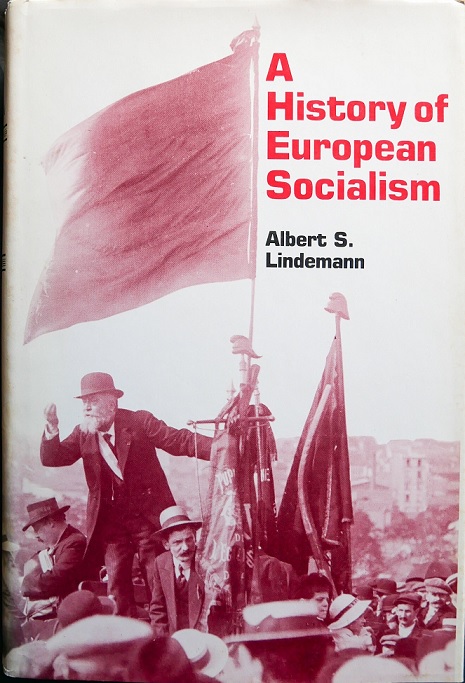Biblioteca / 1980-1989
Albert Lindemann. A History of European Socialism.
New Haven: Yale University Press, 1983.
xxi, 385 páginas.

Este estudio del socialismo europeo examina la relación entre ideología, instituciones y masas trabajadoras para situar la evolución del socialismo en un contexto amplio. Busca el equilibrio y la exhaustividad, sin dejar de ser accesible a un amplio público.
Aunque las raíces del impulso socialista se remontan a la Antigüedad clásica y al cristianismo, el pensamiento socialista moderno surgió en la Ilustración y a principios del siglo XIX. La fusión de las visiones socialistas utópicas y los esfuerzos organizativos de las masas trabajadoras a principios del siglo XIX dieron lugar a un movimiento socialista que creció y maduró bajo la influencia de la teoría marxista. El socialismo floreció en el cuarto de siglo anterior a la Primera Guerra Mundial, pero en la década de guerra y revolución que siguió a 1914 se vio sacudido y transformado. La teoría y la práctica marxistas fueron remodeladas por Lenin, y aún más por Stalin. El movimiento socialista se dividió en componentes comunistas y socialistas democráticos. Sus rencillas fueron finalmente dejadas de lado para hacer frente al movimiento fascista, en rápido ascenso, que estuvo a punto de arrollarlos. La solidaridad de comunistas y socialistas democráticos en la lucha contra el fascismo se disolvió en la Guerra Fría, y en la generación posterior al final de la guerra los socialistas democráticos participaron activamente en el gobierno parlamentario de casi todos los países de Europa occidental, aunque siguiendo pautas muy diversas. También entre los comunistas, especialmente en las décadas de 1960 y 1970, surgió una variedad cada vez más amplia de perspectivas y prácticas.
Contents
Introduction: What Is Socialism?
1 – The Roots of Socialism
Premodern Socialism, from Ancient Times to the Enlightenment
Revolutionary Change in Europe
Private Property and Greed: Rousseau, the Communist Philosophes, and Babeuf
The Democratic-Radical Tradition
2 – The First Socialists, 1800-1848
The Utopian Socialists
Working-Class Consciousness in the Early Nineteenth Century
The Fusion of Socialist Theory and Working-Class Consciousness, 1830-1848
Socialists, Communists, and the Revolutions of 1848
3 – The Maturation of Socialism, 1850-1870
The Young Marx and the Genesis of Marxian Communism
Socialism at Its Nadir: 1850-1870
Marx’s Revolutionary Theory
Marx, the Workingman’s International, and the Paris Commune
4 – Socialism as a Major Force, 1870-1914
The Spread of Marxism in the 1880s
The Second International
The Anarchist Alternative
The Classic Age
5 – The Birth of Communism, 1914-1924
Socialists and War
Revolution in Russia
Revolution in the West and the Origins of Western Communist Parties
6 – The Democratic Socialists, 1914-1939
The German Social Democrats in War, Revolution, and Republic
The British Labour Party
The SFIO in the Interwar Years
The Democratic Socialists in Austria and Sweden
7 – The Rise of Stalinist Communism, 1919-1939
The Struggle for Power in Russia
The Emergence of Stalinist Communism in the West
Stalinism Triumphant
8 – The Fascist Threat, 1923-1939
The Victory of Fascism in Italy and Germany
The Popular Front
The Collapse of Internationalism: The Spanish Civil War and the Nazi-Soviet Pact
9 – Socialism and Communism since World War II
The Evolution of European Communism, 1945-1982
The Democratic Socialists following World War II
The Future of European Socialism
Bibliography